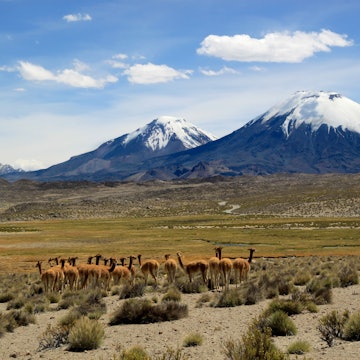

If you visit the Argentine province of Corrientes, you may be lucky enough to spot the the first giant river otters to return to the country as part of an ambitious rewilding project. Previously extinct in Argentina, the arrival of Lobo, a four-year-old male from the Parken Zoo of Eskilstuna, and Alondra, an eight-year-old female from the Budapest Zoo, hails the return of the top aquatic predator to the Iberá wetlands.
The pair will gradually be introduced to each other before their release in the heart of the wetlands in San Alonso. The rewilding project has long-term plans to continue until a healthy population of giant otters can re-establish itself in Argentina. The process of adapting these animals to life in the wild will require an extended quarantine period with routine check-ups in San Cayetano, Corrientes.
The giant river otter, known as Pteronura brasiliensis, became extinct in the middle of the 20th century due to illegal hunting, coastal development and the construction of large-scale dams. Reaching up to 1.8 metres-long, it's the longest otter worldwide and tends to live in family groups of up to fifteen individuals. This attempt to reintroduce an extinct mammal in Argentina brings hope for restored ecosystems and increased ecotourism opportunities based on wildlife watching.
Sebastián Di Martino is the director of conservation of CLT (Conservation Land Trust) Argentina, the foundation created by Tompkins Conservation in conjunction with the province of Corrientes. He feels that the huge protected area offered by the adjoining Iberá National Park and Iberá Provincial Park offers ideal conditions for the giant otters re-introduction. “The project’s principal objective is for Iberá to continue to become whole and functional from an ecological perspective, especially now that the threats which had originally led the giant otter to extinction are no longer present,” he says.
For further information on Tompkins Conservation, see here.
Take your Argentina trip with Lonely Planet Journeys
Time to book that trip to Argentina
Lonely Planet Journeys takes you there with fully customizable trips to top destinations – all crafted by our local experts.
























